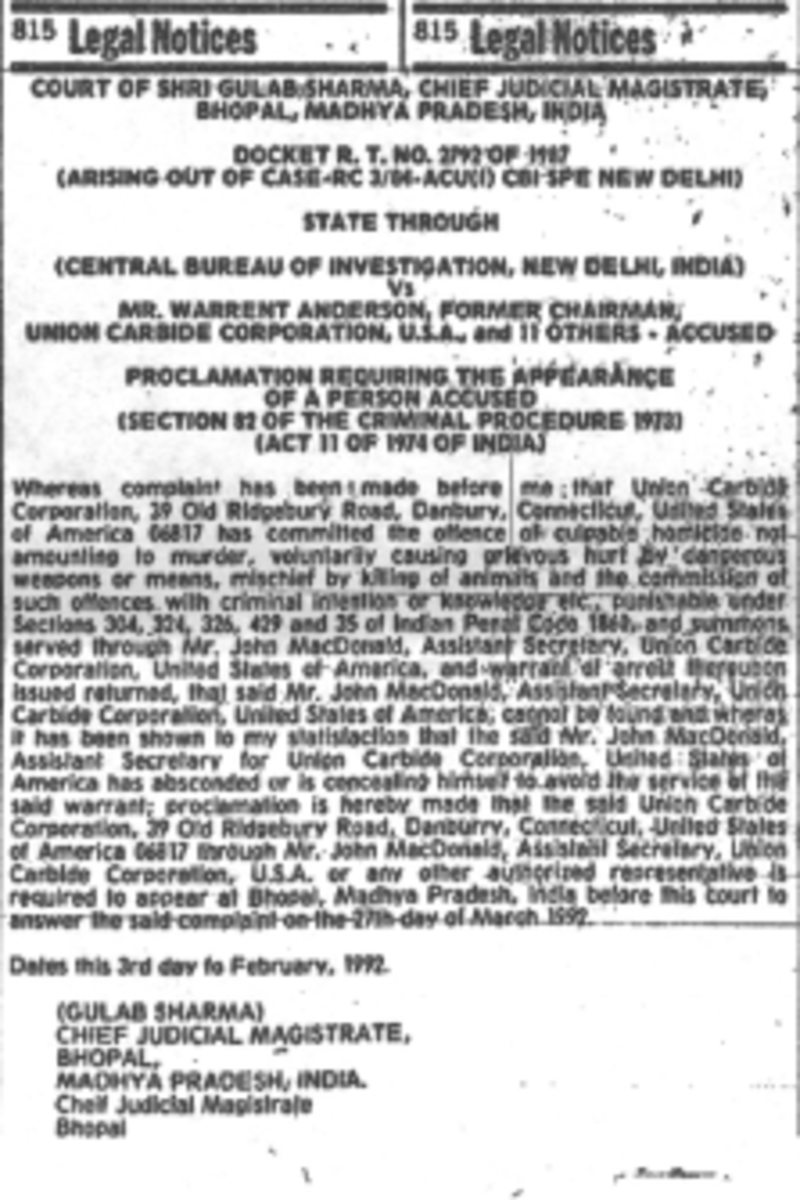As of last Thursday, February 3rd, it was 30 years to the day since Warren Anderson, former Chairman of Union Carbide Coporation (UCC), and 11 others named as offenders in the Bhopal gas disaster by the Chief Judicial Magistrate of India were proclaimed absconders from justice and summons were issued for them to appear in the Bhopal District Court, Madya Pradesh.
The Legal Notice below, published in The Washington Post, states that Warren Anderson and 11 others stand accused of ‘culpable homicide not amounting to murder’, as well as several lesser charges. It also states that John Macdonald, then Secretary of UCC, has been determined to be concealing himself to avoid the issue of a warrant to the corporation, and as such Macdonald, Anderson and UCC have been named absconders from justice and must appear ‘before this court to answer the said complaint on the 27th day of March 1992’:

Needless to say, Macdonald, Anderson and UCC did not appear in the Bhopal courts the next month to answer the charges. Indeed, in the following years Macdonald and UCC would go on to pull off a series of shady business dealings all designed to ensure that UCC would never see the inside of an Indian courtroom. These included selling off their majority shares in Union Carbide India Limited (UCIL), UCC’s Indian subsidiary and original operators of the MIC factory in Bhopal, and setting up a supposedly distinct company for the sale of UCC goods in India: Mega Visa, comprised of Mega Global Services Inc. (Texas), and Mega Global Services Inc. (Singapore).
These ‘front’ and ‘dummy’ companies continued trading in UCC merchandise in India until the time of UCC’s merger with Dow Chemical in 2001, after which distribution of UCC products was slowly passed to Dow’s own local affiliates, resulting in the eventual suing of Dow Chemical by the operators of Mega Visa. In the course of the legal proceedings, it was revealed that Mega Visa were nothing more than ‘commission-compensated middle-men’ for the sale of UCC products in India, doing business on a transaction by transaction basis.
Meanwhile, continuing the same tactics applied by UCC prior to the merger, DOW continued to claim their Indian subsidiaries responsible for the distribution of UCC products were in no way affiliated with UCC and therefore could not be called upon to summon UCC in the Indian courts. As of today, Dow continues to claim that UCC remains it’s own distinct corporate entity registered in New York, and no representative of UCC has ever appeared in an Indian courtroom.


